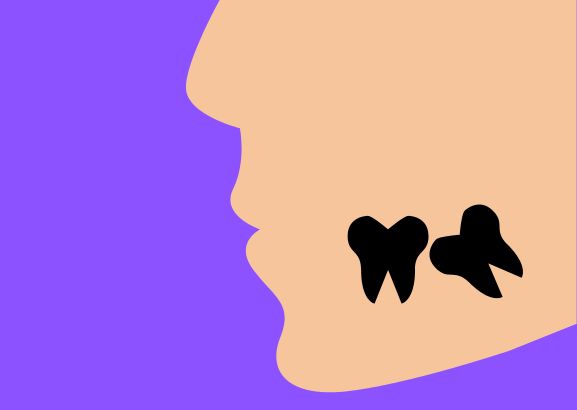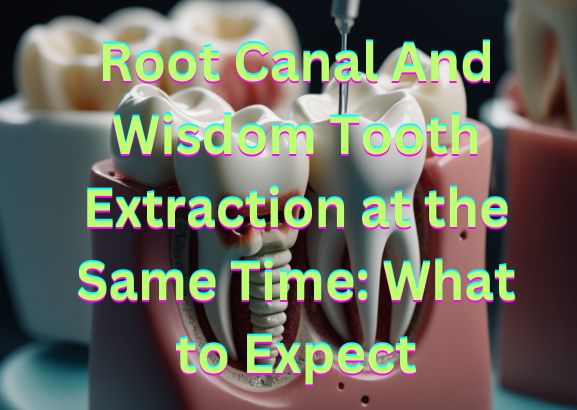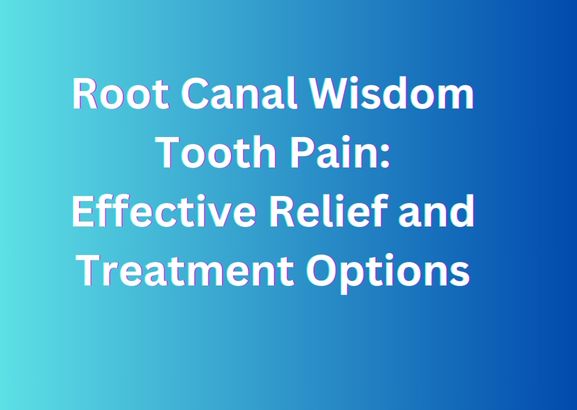Can You Safely Keep Your Wisdom Teeth If They Don’t Hurt?
Yes, you can keep your wisdom teeth even if they don’t hurt. The decision to keep or remove them should be made in consultation with your dentist or oral surgeon.
Wisdom teeth, also known as third molars, usually start to erupt between the ages of 17 and 25. While many people experience pain or discomfort when their wisdom teeth come in, this is not always the case. Some people may have fully erupted and healthy wisdom teeth that do not cause any problems.
This raises the question of whether it is necessary to have them extracted if they don’t hurt. This article will explore the factors to consider when deciding whether to keep or remove your wisdom teeth, emphasizing the importance of consulting with a dental professional to make an informed decision.
Are Wisdom Teeth Essential?
Wisdom teeth may not be essential if they don’t cause any pain. Their evolutionary purpose is questioned, as modern humans no longer require these extra molars. However, keeping them can lead to various problems. Infections, gum diseases, and tooth decay are common issues that arise due to the presence of wisdom teeth.
If their growth is causing discomfort, it is advisable to have them removed as a preventive measure. Extracting wisdom teeth is a standard dental procedure that can prevent future complications. Dentists often recommend removal to avoid potential oral health problems.
It is best to consult a dental professional for advice on whether to keep or remove your wisdom teeth.
Potential Risks Of Keeping Wisdom Teeth
Keeping wisdom teeth that don’t cause pain can pose potential risks such as crowding and misalignment. This can lead to an increased risk of cavities and gum disease. Impacted wisdom teeth, where the teeth do not fully erupt, can cause further problems.
There is also a possibility of developing cysts or tumours if wisdom teeth are left in place. It’s essential to consider these potential risks and consult with a dental professional to determine the best course of action. Expert advice will help assess the individual situation and make an informed decision regarding the retention or removal of wisdom teeth.
Ultimately, it is crucial to prioritize oral health and prevent future complications that may arise from keeping wisdom teeth that don’t hurt.
Factors To Consider When Deciding To Keep Wisdom Teeth
Factors to consider when deciding to keep wisdom teeth include oral hygiene and maintenance, comfort and tolerance, and potential future problems. Taking care of your oral health plays a crucial role in determining the fate of your wisdom teeth. Evaluating your level of comfort and tolerance towards these teeth is essential.
Additionally, it’s important to anticipate any potential future problems that may arise. Each individual’s dental assessment will provide valuable insights into whether wisdom teeth should be retained or not. Considering all these factors will help you make an informed decision about keeping your wisdom teeth without the need for extraction.
So, take care of your oral hygiene, assess your comfort, and be mindful of any potential problems to make wise decisions.
Monitoring And Maintaining Wisdom Teeth

Monitoring and maintaining wisdom teeth is crucial, even if they don’t cause any pain. Regular dental check-ups are essential to detect any issues. Practicing proper oral hygiene, like brushing and flossing, helps keep your wisdom teeth clean. X-rays and evaluations allow dentists to assess any changes over time.
By addressing potential problems early on, you can avoid future complications. It’s essential to prioritize your oral health and discuss with your dentist if keeping your wisdom teeth is a viable option. Remember that every individual’s situation is unique, so consult with a dental professional for personalized advice.
Managing Symptoms Without Removing Wisdom Teeth
Keeping your wisdom teeth without pain doesn’t mean you should ignore them. Orthodontic treatments help manage space, while pain relief techniques alleviate discomfort. Regular cleanings and periodontal treatments ensure oral health.
Surgical Intervention For Wisdom Teeth
Keeping your wisdom teeth without pain might be possible, but surgical intervention is sometimes necessary. The extraction procedure involves a comprehensive overview of the process. It is crucial to consider the potential complications and risks associated with this surgical procedure.
After the extraction, you will need to have a recovery period and follow specific aftercare tips to ensure proper healing. Keeping your wisdom teeth, even if they don’t hurt, may not be the best choice in the long run. Ultimately, the decision should be made in consultation with your dentist or oral surgeon, taking into account your dental health and any potential future issues.
Seeking Professional Advice
Seeking professional advice is crucial when it comes to deciding whether to keep your wisdom teeth. Consulting with a dentist or oral surgeon is the first step. They will conduct an individual assessment to determine the best course of action.
Understanding the pros and cons is vital in making an informed decision. It is essential to consider factors such as the position of the teeth, potential pain or discomfort, and the risk of complications. Wisdom teeth that don’t cause any issues may be kept, but regular monitoring is necessary.
However, if there are concerns about overcrowding, decay, or gum disease, extraction may be recommended. Remember, every case is unique and requires personalized attention to ensure the best outcome for your oral health.
Frequently Asked Questions Of Can You Keep Your Wisdom Teeth If They Don’T Hurt
Can You Keep Your Wisdom Teeth If They Don’t Hurt?
Yes, you can keep your wisdom teeth even if they don’t cause pain. However, it is recommended to have them evaluated by a dentist regularly. Wisdom teeth can cause various dental issues in the long run, like crowding, infections, and decay.
Your dentist can advise you on the best course of action based on your specific situation.
What Are The Reasons To Keep Your Wisdom Teeth?
Keeping your wisdom teeth is a personal decision based on various factors. Wisdom teeth can be kept if they are healthy, fully erupted, properly positioned, and have enough space to function correctly. However, it is crucial to consult with a dentist to assess the condition of your wisdom teeth and evaluate the potential risks or complications associated with them.
Are There Any Risks Associated With Keeping Your Wisdom Teeth?
Yes, there are risks associated with keeping your wisdom teeth. Wisdom teeth can increase the risk of oral health problems such as infections, decay, gum disease, and discomfort. Additionally, they can cause crowding and misalignment of your other teeth. Regular dental check-ups can help monitor the condition of your wisdom teeth and detect any potential issues early on.
How Can I Prevent Complications With My Wisdom Teeth?
Regular dental visits are essential to prevent complications with your wisdom teeth. Your dentist will monitor the condition of your wisdom teeth and recommend treatment if necessary. It is crucial to maintain good oral hygiene by brushing and flossing regularly and using an antiseptic mouthwash.
These practices can help reduce the risk of infections and maintain overall oral health.
Will Removing My Wisdom Teeth Affect My Jaw Structure?
The removal of wisdom teeth will not affect your jaw structure significantly. In most cases, the removal of wisdom teeth does not cause any noticeable changes in your facial appearance or jaw alignment. Your dentist or oral surgeon will ensure the proper extraction technique is used to minimize any potential impact on your jaw structure.
Conclusion
If your wisdom teeth are not causing any pain or discomfort, you may wonder if it’s necessary to have them removed. While each case is unique, it’s essential to consider several factors when deciding whether to keep or remove your wisdom teeth.
First, consider the future potential problems they may cause, such as overcrowding or damage to neighboring teeth. Second, assess your oral hygiene routine and whether your wisdom teeth are hindering proper brushing and flossing. Third, consult with a dental professional who can provide expert advice based on your situation.
Ultimately, the decision to keep or remove your wisdom teeth should prioritize your long-term oral health and well-being. Remember, regular dental check-ups and open communication with your dentist are crucial in maintaining a healthy smile.



